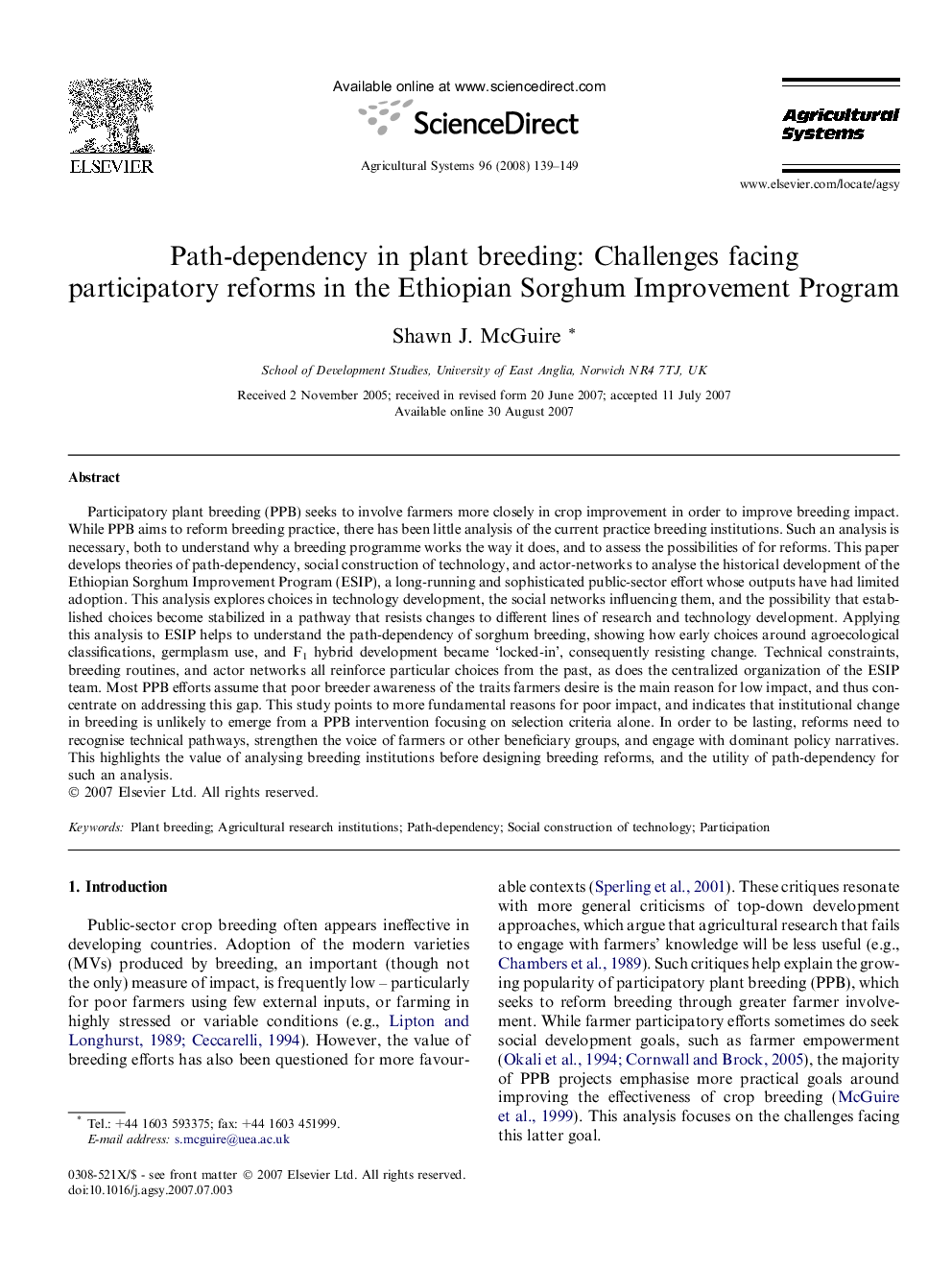| کد مقاله | کد نشریه | سال انتشار | مقاله انگلیسی | نسخه تمام متن |
|---|---|---|---|---|
| 4491873 | 1623269 | 2008 | 11 صفحه PDF | دانلود رایگان |

Participatory plant breeding (PPB) seeks to involve farmers more closely in crop improvement in order to improve breeding impact. While PPB aims to reform breeding practice, there has been little analysis of the current practice breeding institutions. Such an analysis is necessary, both to understand why a breeding programme works the way it does, and to assess the possibilities of for reforms. This paper develops theories of path-dependency, social construction of technology, and actor-networks to analyse the historical development of the Ethiopian Sorghum Improvement Program (ESIP), a long-running and sophisticated public-sector effort whose outputs have had limited adoption. This analysis explores choices in technology development, the social networks influencing them, and the possibility that established choices become stabilized in a pathway that resists changes to different lines of research and technology development. Applying this analysis to ESIP helps to understand the path-dependency of sorghum breeding, showing how early choices around agroecological classifications, germplasm use, and F1 hybrid development became ‘locked-in’, consequently resisting change. Technical constraints, breeding routines, and actor networks all reinforce particular choices from the past, as does the centralized organization of the ESIP team. Most PPB efforts assume that poor breeder awareness of the traits farmers desire is the main reason for low impact, and thus concentrate on addressing this gap. This study points to more fundamental reasons for poor impact, and indicates that institutional change in breeding is unlikely to emerge from a PPB intervention focusing on selection criteria alone. In order to be lasting, reforms need to recognise technical pathways, strengthen the voice of farmers or other beneficiary groups, and engage with dominant policy narratives. This highlights the value of analysing breeding institutions before designing breeding reforms, and the utility of path-dependency for such an analysis.
Journal: Agricultural Systems - Volume 96, Issues 1–3, March 2008, Pages 139–149